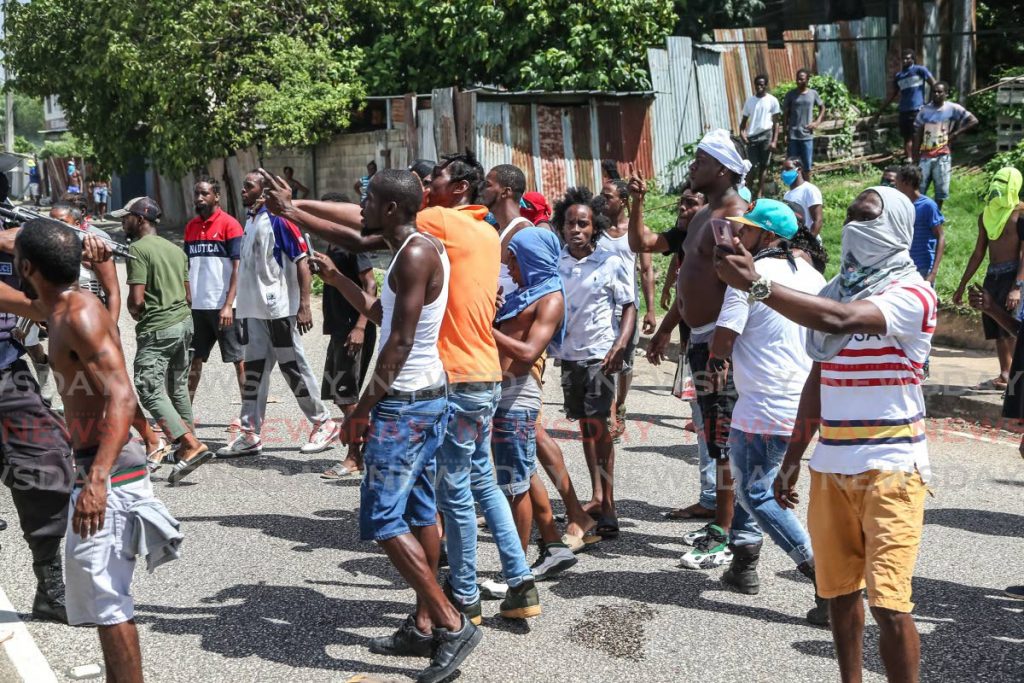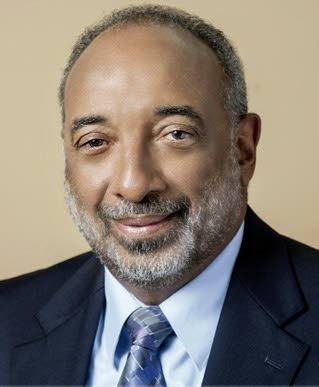Hotspot communities can be saved says chairman of recovery committee

Three months on the job and the Community Recovery Committee appointed by the Prime Minister to help hotspot communities across TT emerge from the abyss of discrimination, depression and oppression, has begun to see a glimmer of hope.
Chairman of the 10-member committee, Anthony Watkins, in a wide-ranging interview with Sunday Newsday expressed optimism that the people in communities such as Beetham, Sea Lots, Laventille, Morvant and many other areas across the country, can recover from decades of hurt and neglect.
Watkins, a psychologist and lead consultant of his own firm, Odyssey Consult Inc, and a host of other activists were appointed on July 2, to help rebuild the trust of the communities and the police, establish greater community pride and create business opportunities among other goals.
The Prime Minister's decision came in the wake of three days of sporadic street protests by communities in East Port of Spain, Beetham, Sea Lots, Cocorite, Laventille and Morvant following the police killing of three men caught on video at Juman Drive, Second Caledonia, Morvant on June 27.
Watkins said the committee's work was nearing the end of its first phase and it had already met with groups of people in about 12 communities to listen to their concerns, build trust and confidence with them as they spoke about how they want their communities to recover.
"We will have to go around again and deepening some of the actual interventions," Watkins said, noting that real results may not be seen for another three to five years.
For now, the committee will focus on communities in East Port of Spain, Laventille, Morvant, Beetham and Sea Lots but will venture to other areas across TT later on. The public gathering restrictions imposed for the covid19 pandemic has also affected the number of people the committee can meet as well as the length of time they can spend together.
Watkins gave an overview of the feedback the committee has gotten.

"A lot of people in our communities have aspirations about what their communities would be like. While there may be perceptions outside of the communities that are negative, people want to succeed, they want their families to succeed, they want to be safe, they want to have access to opportunities like everybody else and they have dreams for themselves and their children."
While this may sound laudable, the obstacles for people in these communities are many and the committee is confident it can help them cross those hurdles.
Going forward, Watkins said, while the committee was not in the business of delivering any social service such as parenting programmes, sports programmes, or any other kind of service, it was willing to link people and help contributors make better use of their resources to benefit the entire community.
While he admitted that the criminal elements were in the minority in those communities, the majority of the law-abiding people want to do better and the committee wants to "create the space where community recovery is everybody's business."
"Our communities are where they are, and they didn't get there overnight, so the community recovery is going to be a long, slow process and there are some immediate things we are going to try to address, establish and offer some hope for people also from a process place, from a systemic place from a cultural place and engaging with the rest of society. Create some of the opportunities that will allow people to build themselves, build their families, build their communities and their lives. We know there are some immediate things we have to look at but we also know that real recovery is not short-term business, we are in it for the long haul," Watkins said.
The committee has already presented its interim report to the Prime Minister ahead of the budget and its request for funding has been approved for the next year.
Watkins admitted that some of the meetings were tense and sometimes boisterous.
"It has been a journey. We have to understand something, hurt people, hurt people. Some people in these communities have been promised things, they have been rejected in some ways, they have been cut out of certain kinds of things in some ways. There is a lot of individual and collective trauma in some of these communities out there.
"Nothing exists without its opposite, you only have and up because you have a down, you only have in because there is an out and when we go into these communities what we hear is some resilience, we hear some hope, we hear desire, we hear drive to do better, but what we also hear is some suspicion and some cynicism."
To counter that negative notion, Watkins said the committee has to demonstrate that its work will be "ongoing, is sustainable and is meaningful."
He said while some people both in and outside of the communities were pessimistic, others were hopeful.
"We have an opportunity to do different, we have an opportunity to do better, we are supported by the political administration certainly by what they have been saying to us, by approval of the budgets and support we have been given so far and we plan to proceed in faith to do what has to be done. The country needs this," he said.
Watkins identified four major platforms to help the communities recover; community pride and ownership which is intrinsically linked to the history and culture of the area; human development which includes physical and mental health to overcome the trauma people would have experienced; social stability which includes community activities and business generation and economic development.
He said from all the committee has heard so far community recovery fits into one or more of those areas.
The committee includes Minister of Education Nyan Gadsby-Dolly; a director of the Children’s Authority, Nichola Harvey-Mitchell; football coach and community activist Jamaal Shabazz; radio and television personality Hans des Vignes; consultant and motivational speaker Curtis Toussaint; author Akosua Edwards, Olympic gold medallist Hasely Crawford, music producer Christopher Leacock (“Jillionaire”) and economist Keron Victor.

Comments
"Hotspot communities can be saved says chairman of recovery committee"